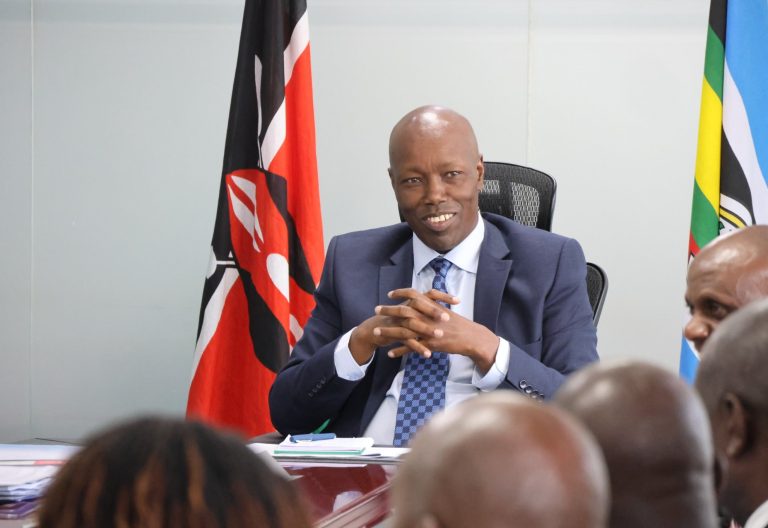Looming row as Treasury cuts down allocation for counties

A clash is looming in Senate after the National Treasury proposed to allocate Sh2.4 trillion to the National Government and Sh405.1 billion for the 47 devolved units under the Division of Revenue Bill, 2025.
The objective of the Bill is to provide for the equitable division of revenue raised by the National Government between the central and county governments in order to facilitate the proper functioning of governments and to ensure continuity of service delivery.
Apart from the Sh405.1 billion equitable share, National Treasury Cabinet Secretary John Mbadi is proposing another Sh10.6billion for Equalisation Fund, which includes Sh7.9 billion as 0.5 per cent of the last, audited and approved actual revenues.
The Equalisation Fund is used to finance development programmes that aim at reducing regional disparities among beneficiary counties.
Mbadi is also proposing unconditional and conditional additional allocations from the National government of Sh12.8 billion to include allocations from court fines (Sh11.5 million), doctor’s salary arrears (Sh1.7 billion) and allocations for 20 per cent share of mineral royalties.
Conflicting numbers
Others allocations include provision for Community Health Promoters (CHP) at Sh3.2 billion, county headquarters (Sh454 million) and establishment of County Integrated Agro-Industrial Parks at Sh4.5 billion.
Treasury wants parliament to consider passing the Division of Revenue Bill 2025, which in its current form, will see counties getting Sh405.1 billion.
The allocation falls short of the Commission on Revenue Allocation (CRA) proposal of Sh417 billion to be disbursed to counties as an equitable share.
County governments are allocated equitable share of revenue, which is an unconditional allocation to enable counties have the autonomy to plan, budget and implement development projects based on their priorities and account for the same.
While the National Treasury is proposing an increase of Sh17.6 billion to county governments equitable share, CRA has proposed an increase of Sh30 billion in the financial year 2025/26 resulting into a difference of Sh12.4 billion.
In his document, Mbadi argues that the figures were arrived at after taking into account the trends in performance, increased expenditures and financial constraints due to limited access to finance in the domestic and international markets.
The Treasury CS further argued that there have been low ordinary revenue collections attributed to the ongoing geopolitical shocks and the government commitment to implement a fiscal consolidation plan targeting to reduce the fiscal deficit to 4.3 per cent of GDP in the financial year 2025/2026.
Gen Z factor
“The Bill proposes to allocate county governments Sh405.1 billion for the financial year 2025/2026 as equitable share of revenue raised nationally, translating to an increase of Sh17.6 billion from a base of Sh387.4 billion allocated in the 2024/25 financial year,” reads the proposed law.
In Division of Revenue Bill 2024, counties had been allocated Sh401.1 billion, an allocation that senators rejected and instead passed Sh407 billion.
However, after the collapse of the Finance Bill 2024 following Gen Z protests, the equitable share was later revised to Sh387.4 billion.
In arriving at the Sh2.4 trillion for the national government and Sh405.1 billion for the counties, Mbadi argued that the national government continues to solely bear shortfalls in revenue in any given financial year whereas the county governments continue to receive their full allocation despite budget cuts.
“The proposed equitable fund for the financial year 2025/26 of Sh405.1 billion is equivalent to 25.8 per cent of the last audited and approved revenues raised nationally of Sh1.57 trillion for the financial year 2020/21 pursuant to Article 2013 (3) of the Constitution,” reads part of the proposed law.
According to Mbadi, there are national interest programmes that include activities aimed at enhancing security operations, national irrigation and fertiliser subsidy initiatives, youth empowerment, provision of national social safety net for vulnerable groups and school examination fees subsidy.
Mbadi argued that allocation to the programmes is expected to increase significantly by 8.8 billion from Sh92.5 billion in the financial year 2024/25 to Sh101.3 billion.
“This increase is largely accounted for by the Sh4.6 billion increase in expenditure on National Safety Net programme to cover the elderly persons under the Indigent Fund for Social Health Authority and Sh4 billion additional funding towards school examination fees.”
According to Mbadi, the Bill has taken into consideration public debt-related costs, which comprise of annual debt redemption costs and interest payment for both domestic and external debt.
In financial year 2025/26, the allocation for payment of public debt related costs is expected to increase from Sh1.34 trillion allocated in the financial year 2024/25 to Sh1.6 trillion allocated in the financial year 2025/26 reflecting an increase of Sh265.8 billion.
Growing debt
In what would further inflame the row between Senate and the National Assembly, Mbadi has proposed Sh26.3 billion for the National Government-Constituency Development Fund (NG-CDF) and Sh3.5 billion for Affirmative Action Social Development Fund.
In addition, Mbadi argues that the Division of Revenue Bill 2025, has taken into consideration other national obligations such as mandatory pension contributions and payments, financing for constitutional offices including Parliament and Judiciary as provided for in the Constitution.
“After taking into consideration the expenditures as well as debt related costs, the National government is left with a deficit amounting to Sh64.6 billion which shall further stretch borrowing and increase public debt,” Mbadi’s proposal notes.










